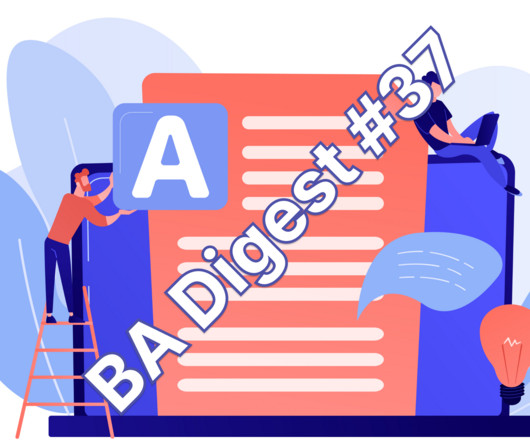Business Analysis Digest #37
Passionate BA
SEPTEMBER 2, 2023
Yulia emphasizes this distinction’s significance in streamlining project planning and requirements gathering and gives more details on each aspect. How can we ensure that our requirement providers and analysts connect with our coders and testers to deliver fast, reliable value? Why is this? PM CEST.











Let's personalize your content